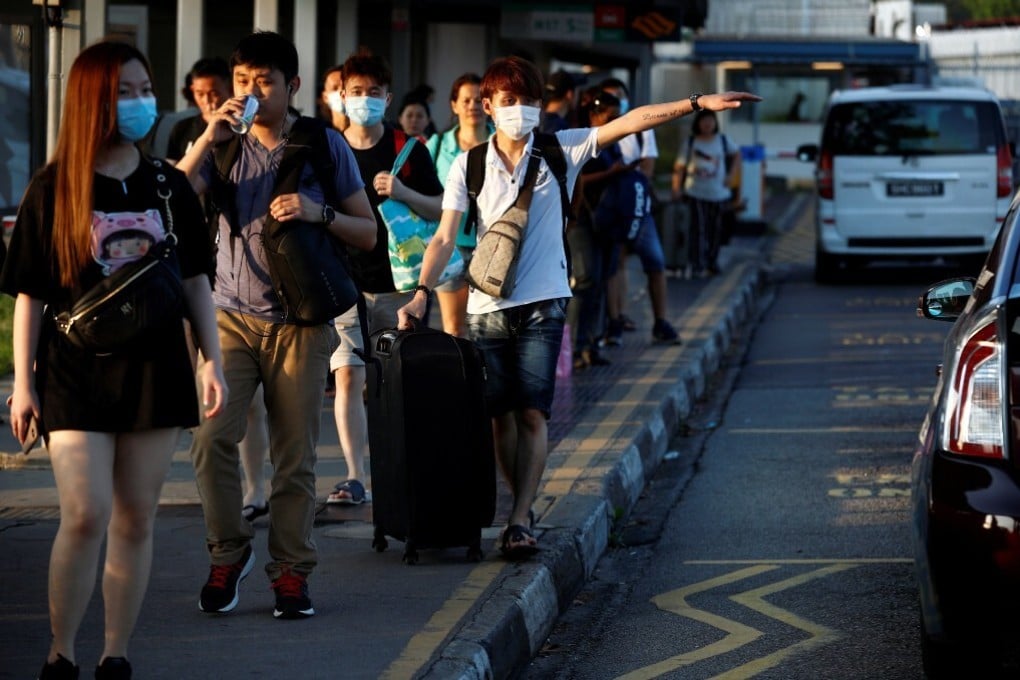Advertisement
Coronavirus: Malaysian workers in Singapore in a quandary after being told to go on unpaid leave
- Many Malaysians have been asked to take unpaid leave during Singapore’s partial lockdown and are unable to apply for part-time jobs by law
- They are hesitant to return to Malaysia for fear that they will be unable to go back to Singapore and are waiting for the circuit breaker to end
Reading Time:4 minutes
Why you can trust SCMP

When the Malaysian Movement Control Order (MCO) took effect on March 18, Cannie Leo scrambled to secure a S$800 (US$561) room in Woodlands with a friend, so that she could continue working for a construction firm in Singapore.
Weeks later, Singapore announced that it was implementing its circuit breaker on April 7, which required all “non-essential” businesses to cease operations for a month.
Leo’s employers asked her to take a month of unpaid leave, and the 27-year-old administrative assistant found herself in a fix.
Advertisement
“I have less than S$200 (US$140) in savings to live in Singapore for the rest of the month. The money I saved in my Malaysian bank account is not even enough to cover my bills for next month, which is more than RM3,000 (US$683),” she said.
Up until the MCO took effect, the Johor resident used to shuttle across the Causeway daily.
Advertisement
Leo earns about S$1,400 (US$983) a month from her current job.

Advertisement
Select Voice
Choose your listening speed
Get through articles 2x faster
1.25x
250 WPM
Slow
Average
Fast
1.25x